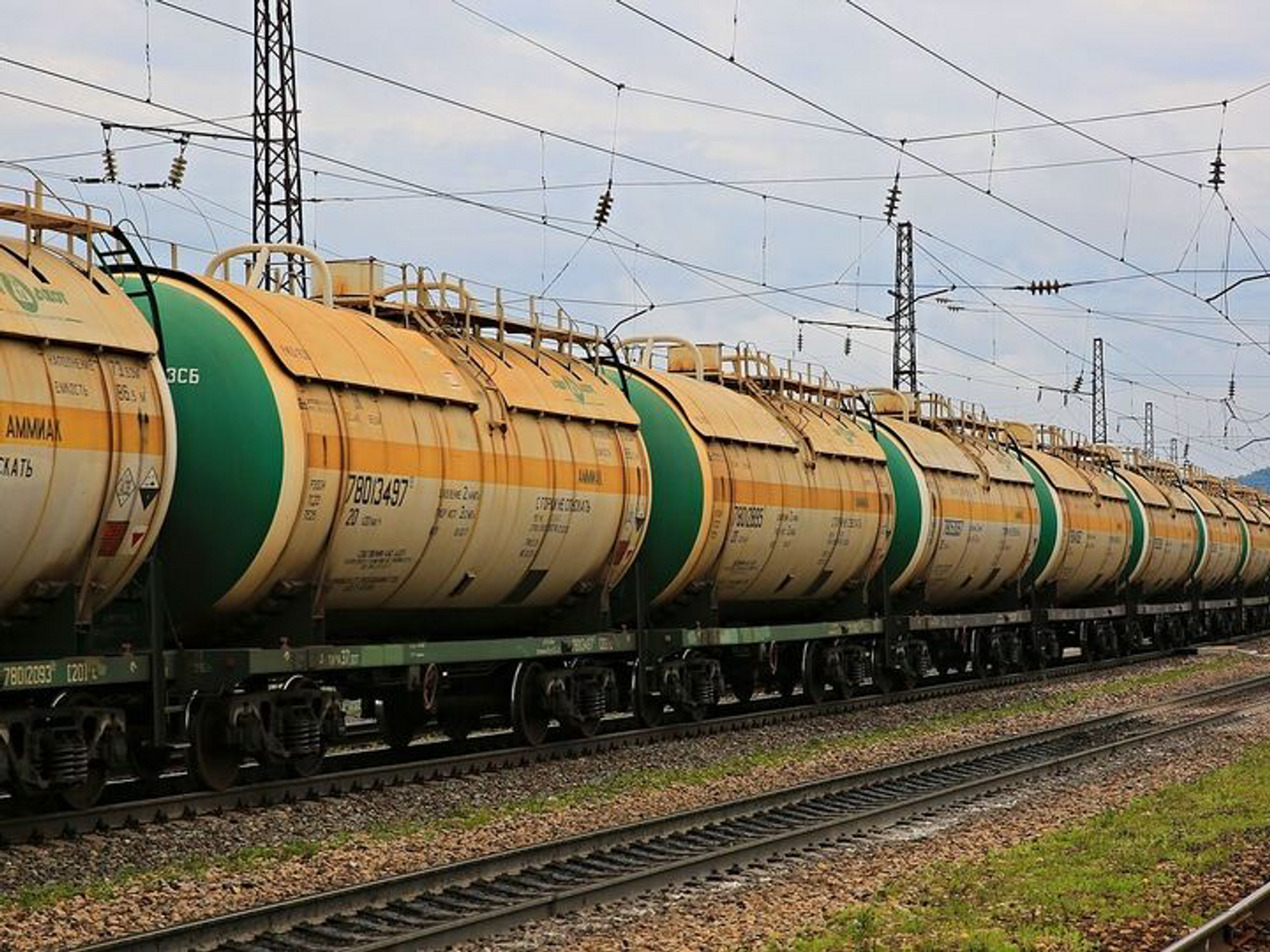Although Lithuania stopped purchasing Russian natural gas in 2022, ammonia produced from it continues to be imported into the country, according to a report by Lithuanian National Radio and Television (LRT). Between early 2022 and the end of Q1 2025, Lithuania imported €157.3 million worth of Russian-made ammonia.
According to LRT, the ammonia is purchased by Lithuanian nitrogen fertilizer manufacturer Achema. The listed sender on shipping documents is the Russian chemical company Shchekinoazot, which is based in the Tula Region. The ammonia is transported by rail via Belarus. Photographs examined by LRT show that the railcars belong to the Russian logistics firm Nova Trade.
According to LTG Cargo, a subsidiary of Lithuanian Railways that is involved in transporting the ammonia for Achema, there is no EU ban on importing ammonia from Russia. Still, Lithuania’s Minister of Economy and Innovation, Lukas Savickas, previously stated that “any economic ties with Russia should be viewed extremely negatively, even if they are technically legal,” as noted by LRT.
LRT adds that in addition to Achema, other Lithuanian companies may also be importing Russian ammonia. However, the Ministry of Economy and Innovation told journalists that it does not have detailed data on individual company imports or exports, only aggregated national statistics. According to Lithuania’s State Statistics Agency, between 2020 and 2025, well over 90% of all ammonia imported into Lithuania was of Russian origin.
In April 2022, Lithuania became the first European Union country to completely halt Russian gas imports — including liquefied natural gas (LNG) — as a response to Russia’s invasion of Ukraine. Since then, Lithuania has met its gas needs through alternative sources, primarily via the Klaipėda LNG terminal.
However, Achema representatives noted that there are no operational ammonia terminals in the Baltic States, making it impossible to source ammonia from the U.S. or other alternative suppliers. According to Achema’s Head of Communications, Jolita Macelaitė, the company was forced to purchase Russian ammonia in order to fulfill contractual obligations to clients.
“Due to volatile natural gas prices in Europe and an influx of cheap fertilizers from third countries, we cannot remain competitive,” Macelaitė said. “As a result, we have suspended production of our main product, ammonia, starting May 17 for several months. We hope that once the EU raises tariffs on Russian fertilizer imports from July 1, and the EU carbon border adjustment mechanism (CBAM) takes effect in 2026, the European fertilizer market will stabilize and we can return to full production.”
According to data analyzed by The Insider, Lithuania imported approximately 237,000 tons of ammonia from Russia in 2024. Of that, 150,200 tons, worth $50 million, were brought in by EuroChem, a Switzerland-headquartered company that used Lithuania as a transit route. Another 50,600 tons, worth $22.5 million, were purchased by Lifosa, a Lithuanian company. Achema itself purchased 36,500 tons, valued at $5 million.
Russia’s largest ammonia exporter is Phosphorit Industrial Group LLC (ООО Промышленная группа «Фосфорит»), followed by KuibyshevAzot PJSC (ПАО «КуйбышевАзот»), Shchekinoazot Trading House LLC (ООО ТД «Щекиноазот»), and EuroChem-Northwest LLC (ООО «ЕвроХим-Северо-Запад»).



